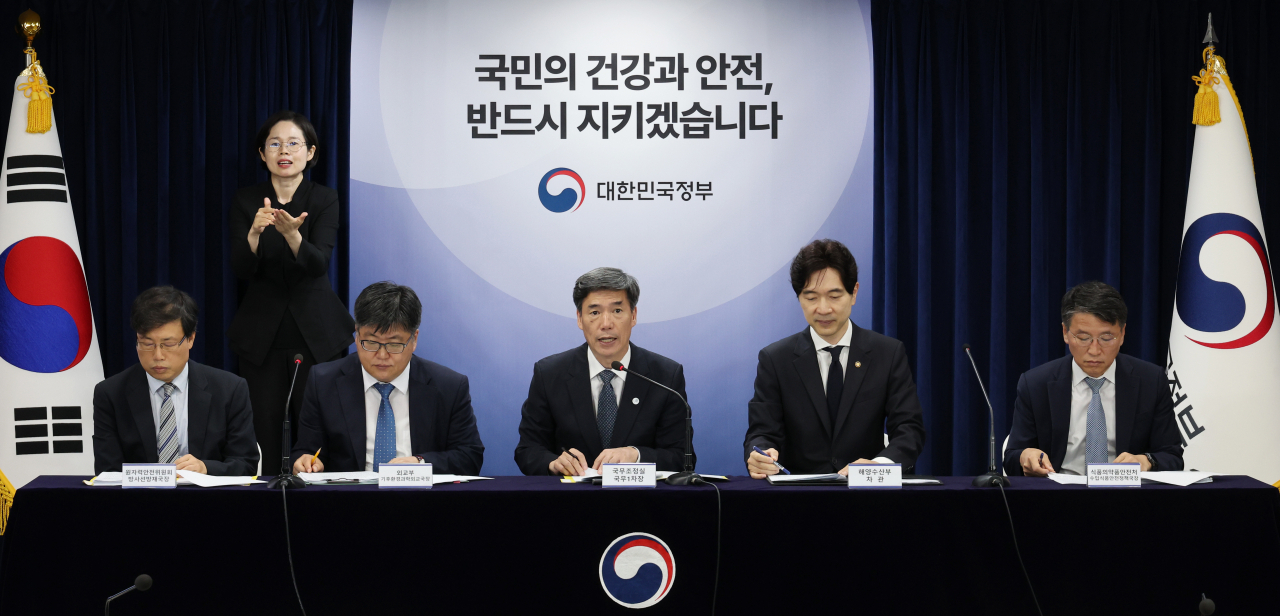S. Korea adopting 'strictest' method of detecting radiation in Japanese seafood
By YonhapPublished : July 27, 2023 - 11:43

The government is adopting the strictest method possible to detect possible radiation in seafood imports from Japan to ensure that not a single trace of hazardous material will be allowed, a senior official said Thursday.
"The government once again reiterates that the people need not worry about the safety of seafood on our table," Park Ku-yeon, the first deputy chief of the Office for Government Policy Coordination, said during a daily briefing on the Fukushima issue.
Park explained that food and drug authorities meticulously check the origin documents of all seafood imported from overseas, including those from the Fukushima region.
South Korea banned all seafood imports from eight Japanese prefectures near Fukushima in 2013 on concerns over their radiation levels in the wake of the meltdown incident in 2011.
Once the products are deemed suitable for imports, authorities conduct detailed radiation tests at the site, according to Park. Even a very small amount of radiation detected will result in an immediate ban on the products.
As part of routine checks, the government has conducted measurements on 55,548 cases of seafood at the production level this year, and all of them have shown no traces of radiation. (Yonhap)




![[Music in drama] Rekindle a love that slipped through your fingers](http://res.heraldm.com/phpwas/restmb_idxmake.php?idx=644&simg=/content/image/2024/05/01/20240501050484_0.jpg&u=20240501151646)


![[New faces of Assembly] Architect behind ‘audacious initiative’ believes in denuclearized North Korea](http://res.heraldm.com/phpwas/restmb_idxmake.php?idx=644&simg=/content/image/2024/05/01/20240501050627_0.jpg&u=20240502093000)



![[KH Explains] Will alternative trading platform shake up Korean stock market?](http://res.heraldm.com/phpwas/restmb_idxmake.php?idx=644&simg=/content/image/2024/05/01/20240501050557_0.jpg&u=20240501161906)







![[Today’s K-pop] Stray Kids go gold in US with ‘Maniac’](http://res.heraldm.com/phpwas/restmb_idxmake.php?idx=642&simg=/content/image/2024/05/02/20240502050771_0.jpg&u=)